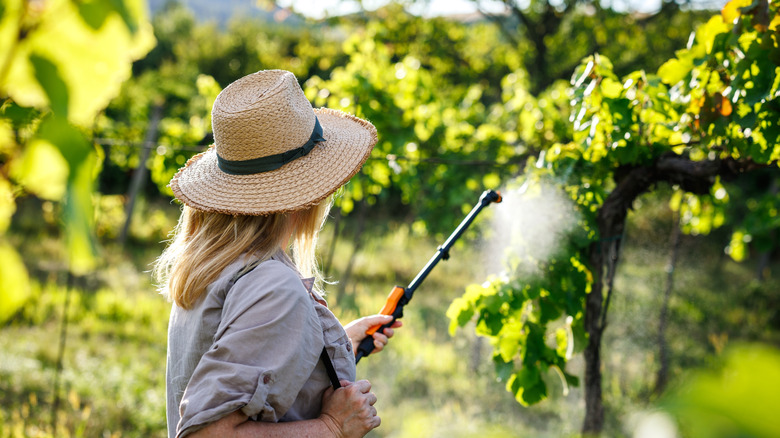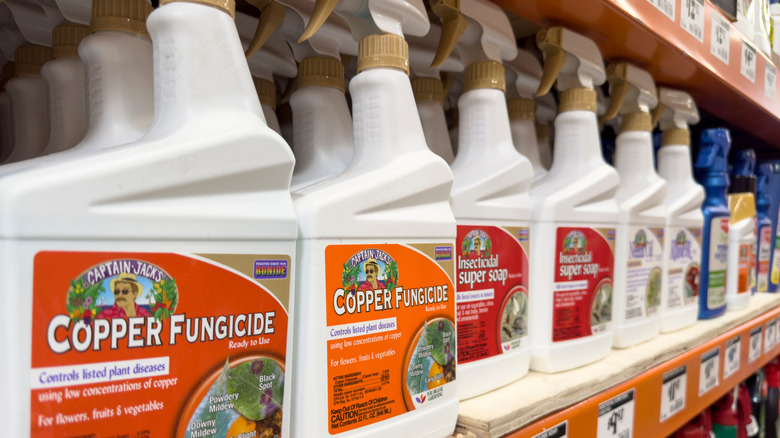What's The Best Fungicide For Keeping Mushrooms And Mold Out Of Your Garden? Here's How To Choose
It is common to find mushrooms growing around your lawn or in your garden, especially in wet conditions. But sometimes, you may find that mushrooms in your yard are really telling you your lawn's health is in tip-top shape. In your garden, however, it may be an entirely different story. It's true that mushrooms in your soil can actually prove beneficial to your yard or garden. But if you see mushrooms on the plants themselves, you have a problem. In addition, any sign of mold could be cause for concern. Fungus is one of the most common plant pathogens that causes disease in plants. That being said, you should only treat your plants with fungicide if you notice an issue with mushrooms or mold on your plants. There are no products that can be used to prevent fungal growth before it occurs because each product is designed to manage specific diseases. However, fungicides can prevent the spread of disease once it has been identified.
Choosing the best fungicide for your garden may be different from choosing the best fungicide for your lawn care needs. So how do you decide which fungicide is best for keeping mushrooms and mold out of your garden? It all starts with a diagnosis. You can not effectively choose a fungicide that will work for your garden if you do not know the type of disease impacting your plants. You will need to consult with a professional for an accurate diagnosis. You can either contact a lawn care professional or submit a sample to your local UF/IFAS Extension.
Selecting the right fungicide after getting a diagnosis
The results of your disease diagnosis will help you identify the type of fungicide that will be effective in treating the issue. The company or authority that diagnosed the issue should also provide you with a fungicide management recommendation. This is the best place to start, but it isn't the only thing to consider when selecting your fungicide. You will also want to be aware of the specific considerations for your garden, including what you need the fungicide to do, the other plants you have growing in the area, and local regulations.
If you need the fungicide to prevent future infection from impacting plants that are not yet impacted, you can use a contact fungicide that is sprayed on the plant. It will create a protective barrier, but will not stop an active infection. For active infections, you will need to select a systemic fungicide with curative action. However, systemic fungicides may not reach the roots, so there is no guarantee they will cure all plants.
For plant and local regulations, check the label of the fungicide. It will tell you what plants you can use it on and the regulations for use. If the label does not name the plant you wish to use it on, do not use it. It is illegal to use it on any plant not identified, even if it treats the diagnosed condition. In some cases, you can create your own natural alternative to store-bought fungicides to prevent unintentional harm.

